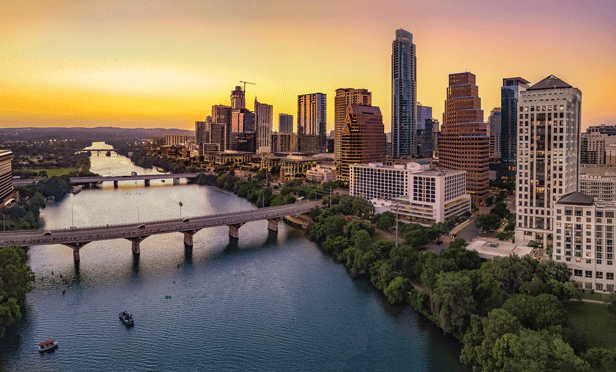As tenants go back to work in commercial buildings, communication will be the key to a successful response to COVID-19 outbreaks.
"During the current period of crisis, our immediate goals from an ESG perspective are to communicate with stakeholders and address the acute incidents that can occur in the building," DWS Group wrote in a whitepaper on ESG investing in real estate in a post-COVID world. "This involves the formation of rapid response crisis teams on-call to address incidents occurring at any time of day and communicating with residents pro-actively and regularly."
When there is an actual COVID-19 case in a building, Jessica Elengical, head of ESG strategy, Alternatives at DWS, says the rapid response team should be ready to mobilize, regardless of the time of day. This team should encompass representatives from property management, asset management, risk management and communications professionals.
"When a case comes up, how do you identify where it is, where it moves throughout the building, what are the areas that need to be cleaned, who needs to be brought in, who needs to be notified and what are the potential liability issues?," Elengical says.
Sophisticated smart building systems can help answer some of these questions. These systems can identify where people with COVID may have gone and who they may have seen.
"If you identify where the person has come in, you use things like your security systems and your elevator schedule to see the path that they took into the building and identify the areas that you need to address," Elengical says.
Elengical said building operators could learn from the work they put in to mobilize and respond to COVID-19. "It helps us to evolve our response to have better coordination and to be able to react and prepare for things as they unfold and in other buildings in the portfolio," she says.
As building operators think about their response to COVID-19, they also need to consider supporting the community at large.
"That [supporting the community] can be a lot of things," Elengical says. "It really depends on the circumstance. One thing that has popped up recently is supporting a pop-up [COVID-19] testing center. We've looked at that a couple of times"
To be ready to help when these situations arise, landlords need to plan ahead.
"Communicate to your property management teams that when these sorts of things come up, whether it's a natural disaster or a pandemic, we as landlords are supportive of helping the local community," Elengical says.
There are multiple ways to help out, according to Elengical.
"One piece of that is being able to offer our facilities as an area of support," Elengical says. "For instance, in natural disasters, first responders need to set up shop. If you have the shopping center that's up on a hill, it's another way to support the community."
Want to continue reading?
Become a Free ALM Digital Reader.
Once you are an ALM Digital Member, you’ll receive:
- Breaking commercial real estate news and analysis, on-site and via our newsletters and custom alerts
- Educational webcasts, white papers, and ebooks from industry thought leaders
- Critical coverage of the property casualty insurance and financial advisory markets on our other ALM sites, PropertyCasualty360 and ThinkAdvisor
Already have an account? Sign In Now
*May exclude premium content© 2024 ALM Global, LLC, All Rights Reserved. Request academic re-use from www.copyright.com. All other uses, submit a request to [email protected]. For more information visit Asset & Logo Licensing.








